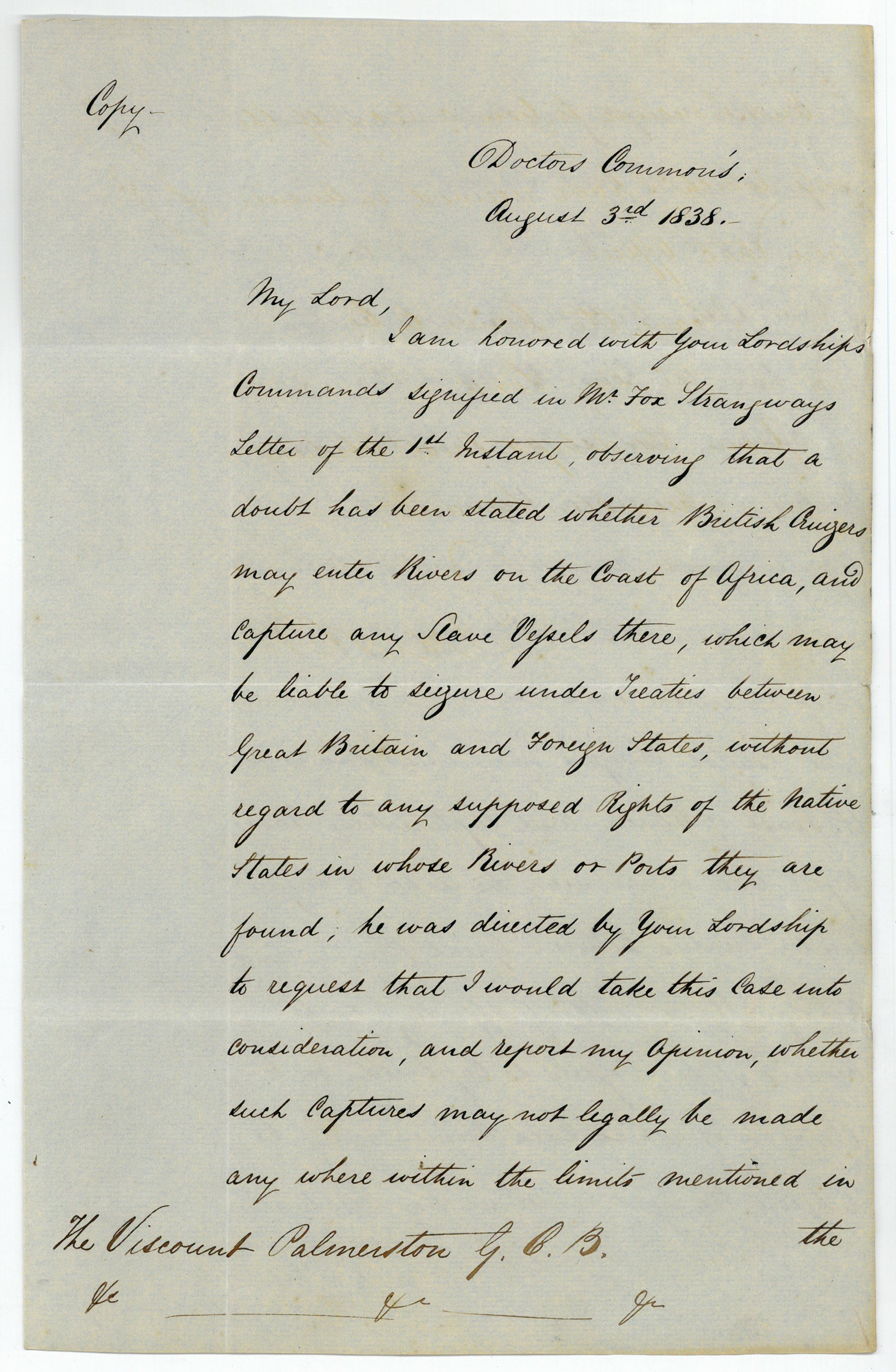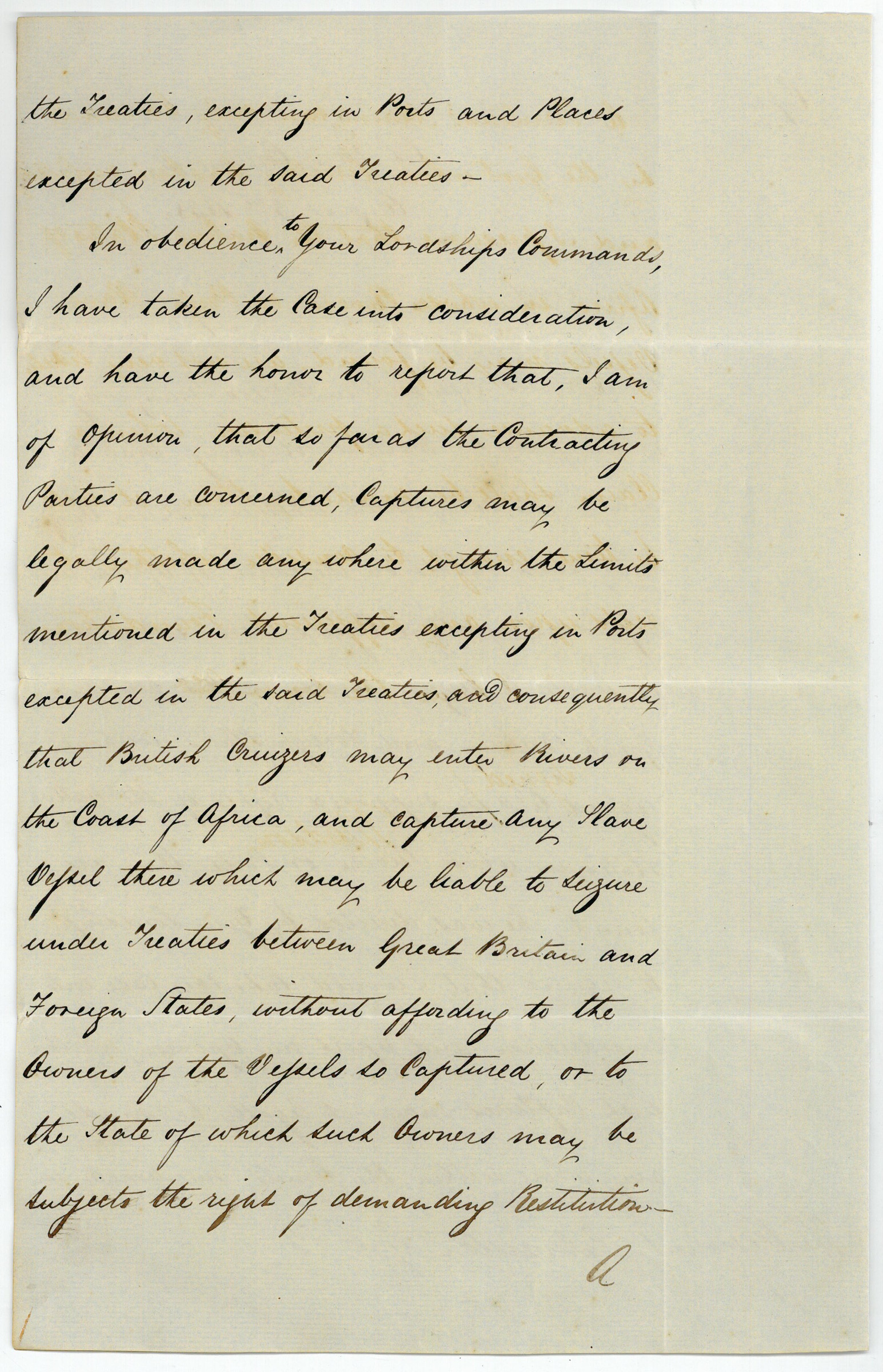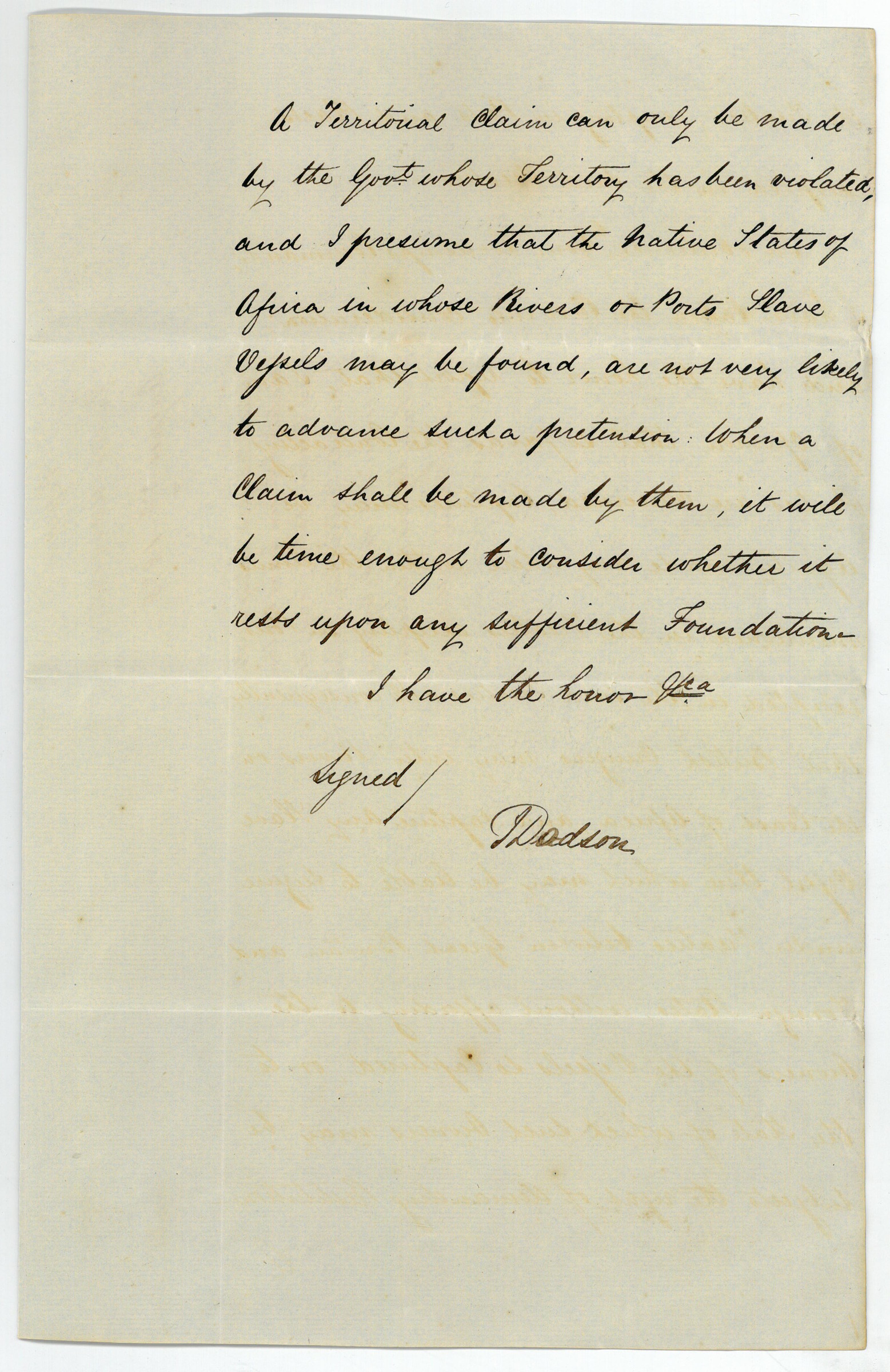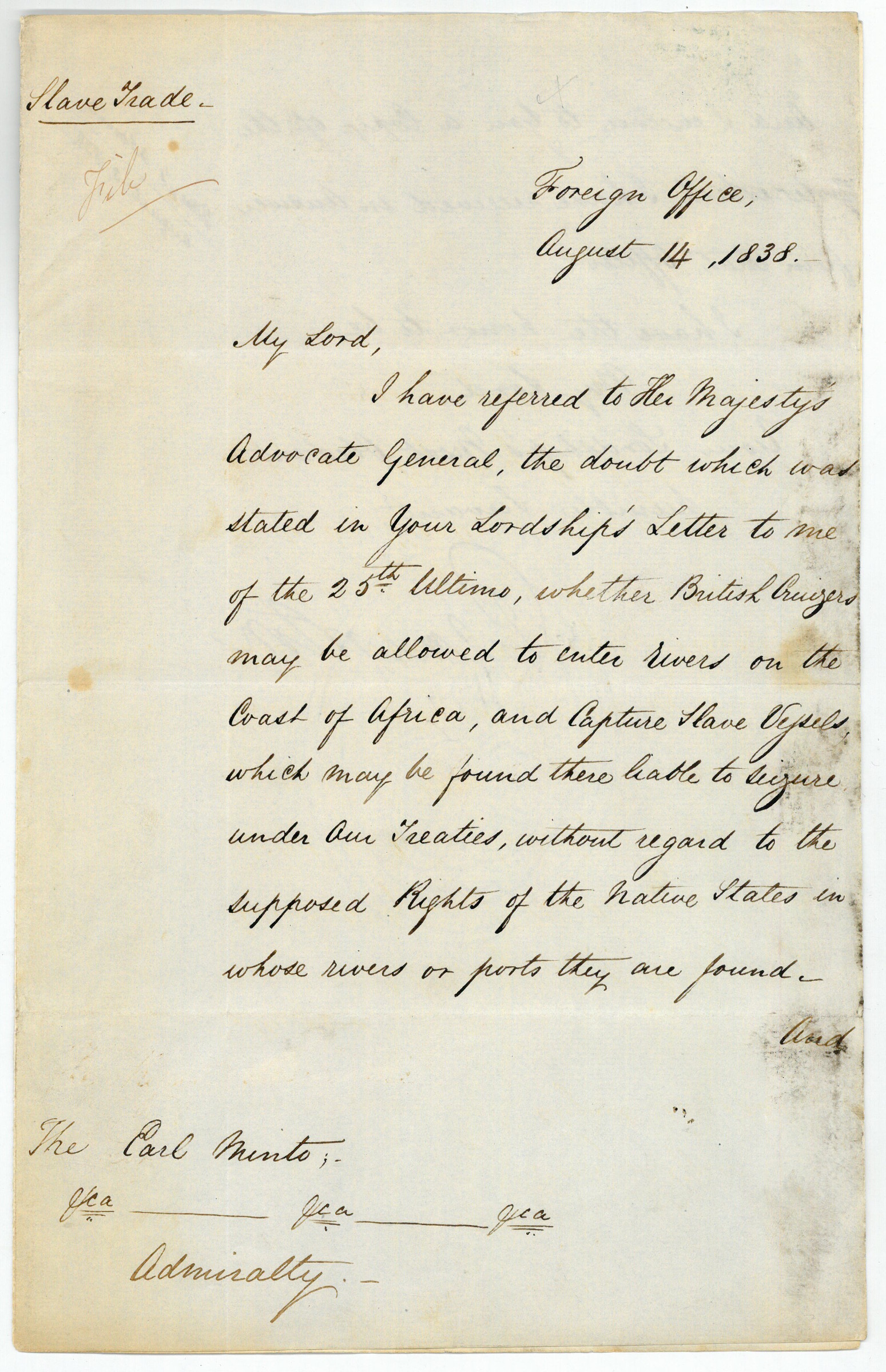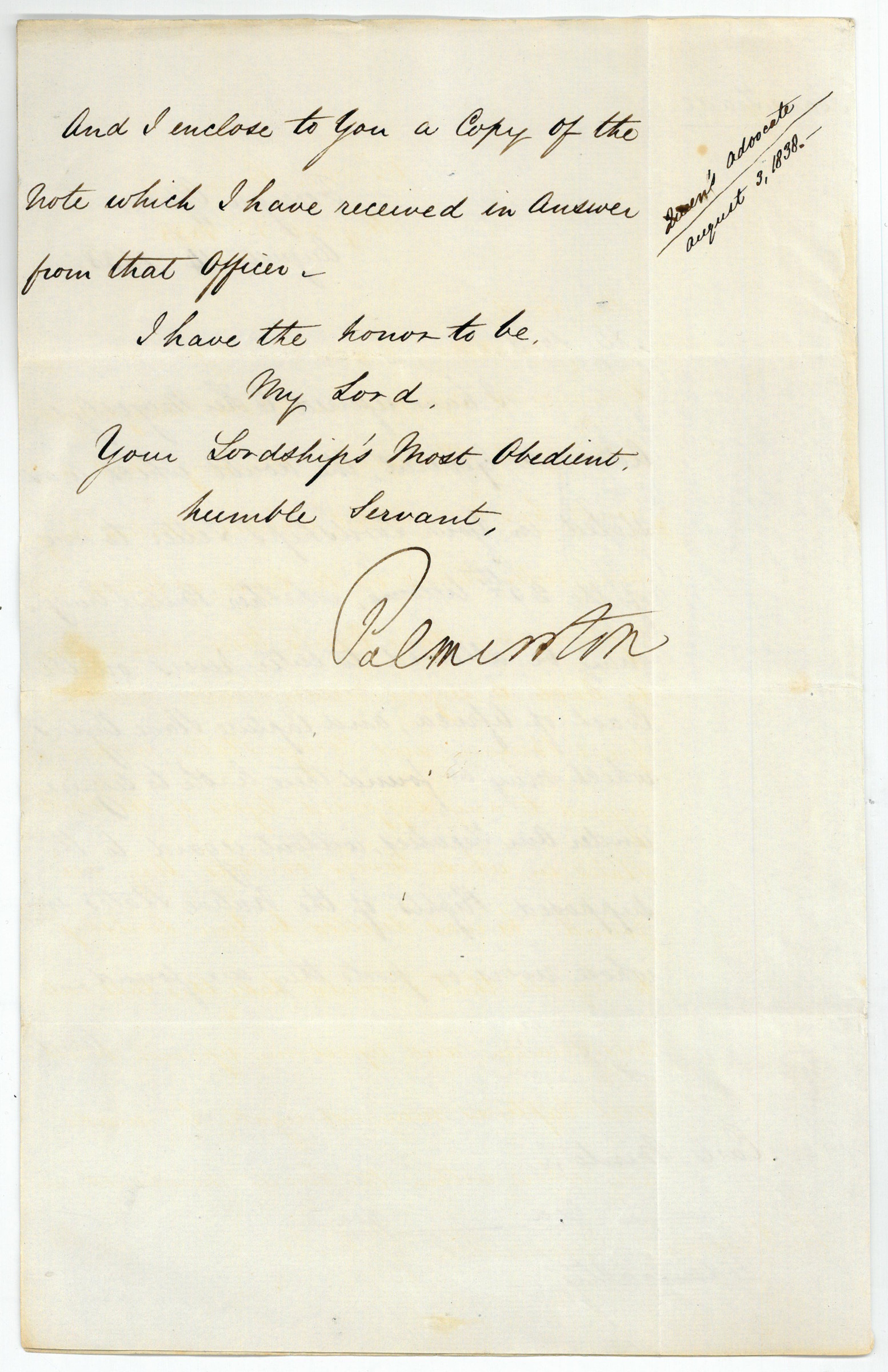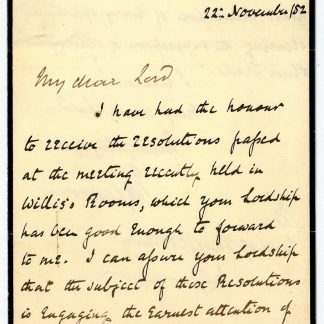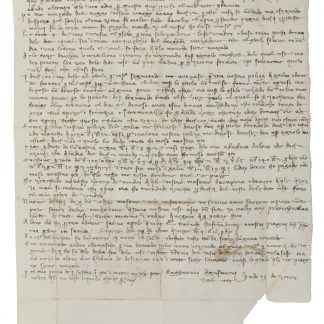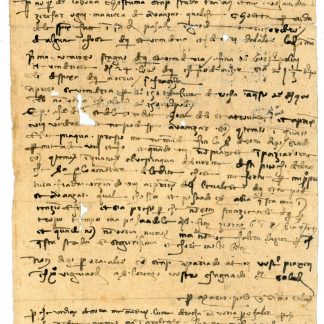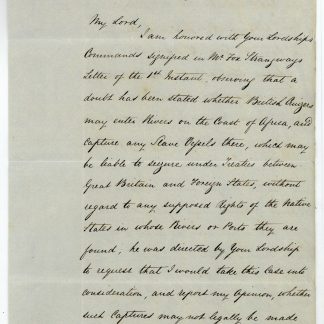Establishing British legal jurisdiction over the global slave trade
Letter signed.
Folio (203 x 318 mm). 2 pp. on bifolium. In an English secretarial hand, signed by Lord Palmerston.
Includes: Sir John Dodson, advocate-general (1780-1858). Secretarial copy of a letter. [London], Doctors' Commons, 3 August 1838. Folio. 3 pp. on bifolium.
€ 3.000,00
The Foreign Secretary and future British Prime Minister Lord Palmerston asserts Britain's right to seize slavers' ships in rivers on the coast of Africa. This policy formed the basis of Palmerston's suppression of the international slave trade, but benefitted British imperial interests by providing the legal basis for England to ignore the sovereignty of "Native States" in whose waters the British could now legally operate with impunity; in doing so, Palmerston paved the way for Britain's Scramble for Africa.
Lord Palmerston was twice the Prime Minister of Britain, and one of the most influential Foreign Secretaries to have shaped the British Empire. He wrote this letter in reply to Earl Minto (1782-1859), First Lord of the Admiralty, who had evidently questioned the legality of British ships capturing foreign vessels in foreign waters, slaver or not. Palmerston's reply makes clear his dedication to both the eradication of the slave trade and the enlargement of Britain's colonial power, sending Minto a copy of a letter from the Queen's Advocate, John Dodson. Palmerston writes:
"I have referred to Her Majesty's Advocate General, the doubt which was stated in Your Lordship's Letter to me [...] whether British Cruizers may be allowed to enter rivers on the Coast of Africa, and Capture Slave Vessels […] without regard to the supposed Rights of the Native States in whose rivers or ports they are found, and I enclose to you a Copy of the Note which I have received in Answer from that Officer".
In the enclosed official copy, Dodson writes: "I am of Opinion, that so far as the Contracting Parties are concerned, Captures may be legally made any where within the Limits mentioned in the Treaties excepting in Ports excepted in the said Treaties, and consequently that British Cruizers may enter Rivers on the Coast of Africa, and capture any Slave Vessel there which may be liable to Seizure under Treaties between Great Britain and Foreign States, without affording to the Owners of the Vessels so Captured, or to the State of which such Owners may be subjects the right of demanding Restitution. A Territorial Claim can only be made by the Govt. whose Territory has been violated, and I presume that the Native States of Africa in whose Rivers or Ports Slave Vessels may be found, are not very likely to advance such a pretension [...]".
Minor creasing and light smudging to edges; in excellent condition.

